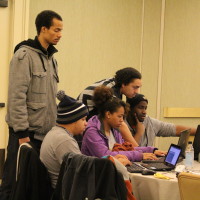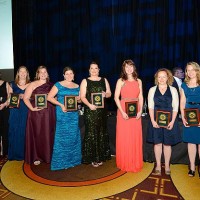Rutgers to Launch Computer Science Living-Learning Community for Women
Originally Posted in Rutgers Today
By: Merrie Snead
Living-learning communities (LLCs) have been shown to have a beneficial effect on undergraduate students, especially during their first year. LLCs provide students a more integrated learning experience by connecting their living environment with the curriculum or a particular theme.
“Both the Association for University Women and the Association of American Colleges and Universities consider living-learning communities a best practice for women in STEM,” said Jacquelyn Litt, dean of Douglass Residential College. “We’ve seen firsthand with our students how it can smooth the transition from high school to college and contribute toward higher student retention, grade point averages and civic engagement.”
Douglass Residential College has established two other successful LLCs for women in the science, technology, engineering and math (STEM) fields, The Bunting-Cobb Residence Hall for Women in STEM and the Douglass Engineering Living Learning Community (DELLC). Bunting-Cobb is the first residence hall in the country designed for women in STEM. The engineering LLC on the Busch Campus, a partnership between Douglass Residential College and the School of Engineering, opened in 2012. The program provides its residents with support through the Douglass peer academic leader program, professional development workshops, and access to graduate mentors, study groups and tutoring, which have had an impact of retention of women in the engineering program.
“Computer science has become important to advances in nearly every domain, including national security, scientific research and commerce. It is transforming fields as diverse as aviation, media, biology, economics and medicine,” said Wright. “A workforce trained in computer science and aware of its important and diverse applications is critical to the continued prosperity and safety of our nation.”
The NSF grant will fund the initial two years of the program and an evaluation of its effectiveness. The evaluation will be conducted at Rutgers and by the Center for Evaluating the Research Pipeline (CERP) in Washington, DC. CERP was founded by the Computing Research Association and Women in Computing Research to evaluate the impact of intervention programs on increasing diversity in computer science research.






